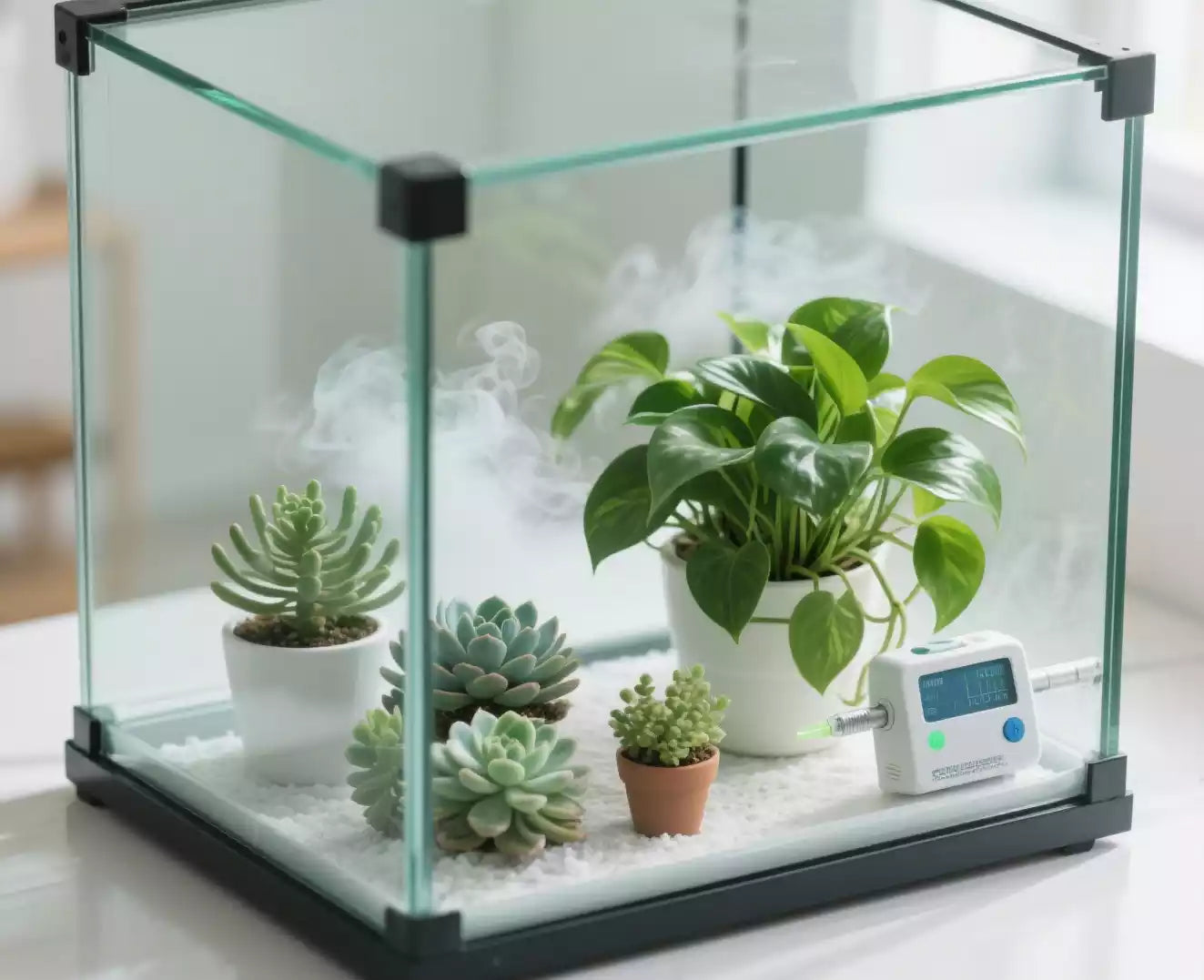
Succulents for Air Purification?
When you walk into a home decor store, a plant section, or even a friend's living room, you're sure to spot a variety of succulent plants. These adorable little plants have won over many hearts with their striking appearance and easy-to-care-for nature. Many people wonder about bringing succulent plants home: Can succulent plants purify the air? Today, we'll delve into this question!
The Much-Anticipated "Air Purifier"
In today's fast-paced lifestyle, everyone desires a healthy and fresh indoor environment. Many people place their hopes for air purification on green plants, and succulents are no exception. After all, who wouldn't want to enjoy the beauty of succulents while also breathing cleaner air? Social media is often filled with posts claiming, "Succulents are amazing at purifying the air," which only fuels curiosity about their air-purifying capabilities.
The Real Deal from a Scientific Perspective
From a scientific perspective, the air-purifying capabilities of succulents are relatively limited. While some studies indicate that succulents undergo CAM metabolism at night, absorbing carbon dioxide and releasing oxygen, thereby regulating indoor oxygen levels to some extent, their ability to absorb and decompose common harmful gases, such as formaldehyde and benzene, pales in comparison to recognized "air purification powerhouses" like pothos and snake plants.
For example, in a newly renovated home, placing a large number of pothos plants can significantly reduce formaldehyde levels in the air. In contrast, the same number of succulents has a negligible effect on formaldehyde purification. Additionally, succulents generally have small sizes and limited leaf surface areas, which restricts their contact with the air and results in lower air purification efficiency.

Other "hidden values" of succulents
Although they may not excel in air purification, succulents offer many other advantages. First, they are ideal for "lazy" care. Many working professionals and students lead busy lives, leaving them with little time to tend to their plants. Still, succulents are drought-tolerant and thrive in poor soil, so even if you occasionally forget to water them, they can still grow vigorously.
Second, succulents have exceptional decorative appeal. Whether placed beside a desk to add a touch of vitality to monotonous work, on a bedroom windowsill to create a warm atmosphere or arranged into creative potted arrangements as unique home decor, succulents excel in any setting. Observing these charming little plants can also alleviate stress, relax the mind, and provide psychological pleasure and fulfillment.
How to Maximize the Benefits of Succulents
If you wish to improve indoor air quality through green plants, consider pairing succulents with other plants that have strong air-purifying capabilities. For example, place a few pots of philodendron or spider plants in the corner of the living room and add some small succulents on the coffee table as accents—both aesthetically pleasing and practical.
Additionally, providing succulents with an appropriate growing environment to keep them healthy can also enhance our mood. Adequate sunlight, good ventilation, and suitable moisture levels are essential for successfully cultivating succulents. You can adjust care methods based on the specific characteristics of different succulent varieties, and watching them thrive is a joy in itself.

So, don't be disappointed by the limited air-purifying ability of succulents. Every plant has its unique charm, and succulents, with their distinctive appearance and low maintenance requirements, are still worth having in your home. Choose a few of your favorite succulents and start your own "succulent lifestyle"!
Share